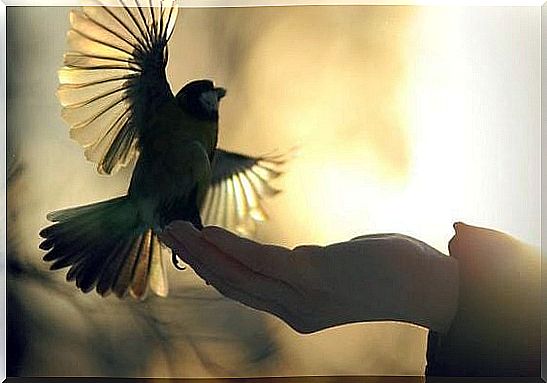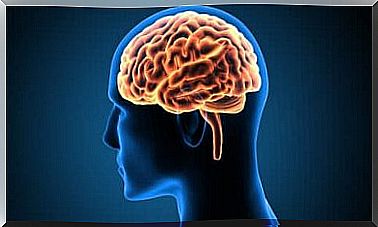I Have A Feeling That One Day, Everything Will Fall Into Place

I have a feeling that one day, everything will fall into place, that every effort will bear fruit, and every glimmer of hope will be rewarded. After all, daring to trust our intuition means: listening to the voice of our soul, to the wisdom of our subconscious mind, which is still in direct connection with our essential nature and that of the world.
At some point in our lives, we all have to deal with the phenomenon of the hunch . It is not (black) magic, no mysterious foreknowledge or predictive gift through a crystal ball. Daniel Cappon, a renowned psychiatrist from York University in Canada, sees such premonitions as the crown of, and over, human intelligence. Although his fairly radical hypothesis is hardly taken seriously in strict scientific circles, this unique prerational ability has played a particularly important role in the evolution and survival of our species for countless years.
Trust your intuition, and pay attention to the hunch that makes your heart beat faster – because somewhere you know and believe that therein lies the key to a better existence, to the holistic harmony that you so need. Because sometimes even blindfolded eyes see more than a closed, or fixed, staring mind.
When we tell someone about this hunch – be it positive or negative, a yes or a no – a slightly skeptical, subtly skewed smile often appears on their face. However, before we mock or criticize these intellectually inexplicable, spontaneously arising, and indicative-informative sensations, we must understand what purpose they serve: namely, when the need is great, when something is being done to you here and now. expected, being able to make lightning decisions, based on implicit-latent memories and experiences, stored deep in your memory, and in your conscience, beyond the reach of your oh-so-eloquent intellect.

Anatomy of the Premonition
Macolm Gladwell, author of the book Intuitive Intelligence, argues that premonitions are the silent voice of our intuition. If the word alone arouses a certain suspicion, it is because of the supernatural or paranormal associations associated with the concept and its use. Let’s therefore analyze intuition – as a concept – a little further, in order to clarify how it actually works.
In general, people rely on their well-considered, well-thought-out mental decisions rather than on verbally vague, inexpressible hunches. Yet many of our reactions are the result of ‘instinct’, not careful, anticipatory reflection.
We are – to a great extent – emotional beings, and because we do not always have enough time, or inclination, to make a detailed cognitive analysis of complex issues, before choosing scenario A, B or C, we turn to the subconscious, we consult our intuition, and its often flawless hunch.
The human brain stores a lot of knowledge in the unconscious part of the mind, where our affective and instinctive shoots , offshoots and impulses, intertwine intimately with the root of all our experience: consciousness. What they, combined, reveal as an interactive ‘trinity’, is what we call intuition.

In fact, according to an article published in Psychology Today, premonitions are our optimal psychological compass because their enlightening presence allows us to act in accordance with our true identity.
How can we best understand premonitions?
Premonitions are often accompanied by several physiological symptoms : the chills, goosebumps, and perhaps most famously, the classic knot in the stomach. Michael Gershon, researcher at Columbia University in the United States, and author of the book ‘The Second Brain’, claims that there, in the abdomen, is an extensive network of nerve cells that is in direct connection with our emotional states. brain.
That such sensory sensations suddenly arise, with and as the premonition, should be received and interpreted as a neuronally stimulating voice-raising of our emotional brain, which wants to warn us about something. How can we better understand and respect our premonitions from within?

Tools to dig deeper into our hunches
Dr Daniel Cappon, quoted just now, published the book ‘ Intuition and Management ‘ in 1994 , in which he explains how to further develop and refine this innate ability. According to him, premonitions are an expression of our inherent, integral intelligence, to which we should – at all times, and under all circumstances – remain receptive.
Our unconscious mind functions as a kind of inner truth serum, as a psychological dowsing rod that leads us to the source and water of our unspoken wisdom. And we have both the opportunity and the capacity to register and interpret every signal, every impression and hunch.
Not all premonitions are necessarily right; that is also important to realize, and not to forget. But even in that case, they invite reflection, in a different, alternative, and in any case valuable way. In addition, creative people’s intuition – and the accompanying premonitions – is above average potent and accessible.
Premonitions have nothing to do with your gender, or gender identity; men and women can be just as intuitive, in all kinds of situations, from early in the morning to late at night – it makes no difference.
Premonitions do surface more often, and we become more aware of them, in moments of rest, calm and relaxation. When we finally disconnect our attention from the exclusive focus on external sounds and (distant) views, and reconnect with our hearts, and our emotions.

Intuition – like (below) gut feelings – is the door to our unconscious wisdom, and is often wrongly ignored by a society that is essentially the quantifiable, the practical-concrete-and-visible appreciates , and is dominated by the mathematical-measurable logic of the left hemisphere.
Still, it pays to listen to those belching premonitions that every now and then – unexpectedly – stir our minds, asking permission to be heard, and honored. In fact, it may be crucial – for intuition is the most immediate, and honest, awareness of our experience, of that which the heart has long known and felt, but our mind – very unwisely – stubbornly continues to deny.









